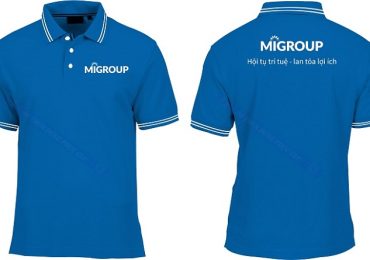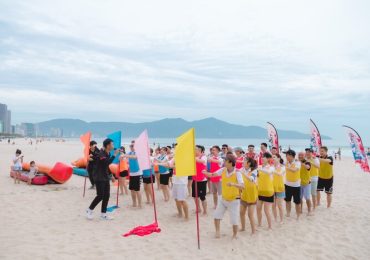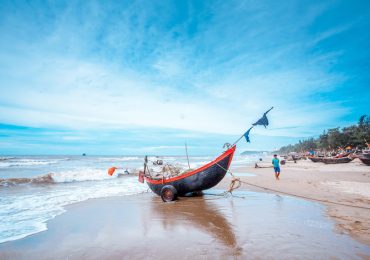Posting date: 23-05-2015 – View: 410
Sapa lies in the very north west of Vietnam near the Chinese border. During the wet season roads can be treacherous with landslides common. The best time to visit is from March to May and from September to mid-December.
In reality the vast majority of visitors arrive in Sapa from Ha Noi via Mai Chau. Sometimes they take the night train straight to Lao Cai province then get minibus to Sapa town. But whatever way you come, people here always welcome you.
In Sapa these local people have quickly adapted to the incursion of tourism and it’s a common sight to see local women from the hill tribes pursuing foreigners down the main street bartering over colorful clothing and souvenirs. You might find this over the top in Sapa and would benefit from a trip out into the more remote villages where tourism hasn’t had such a nasty social impact. The Montagnards aren’t complaining though as many of them have grown relatively wealthy on the back of the new found cash economy.
Things to Do and See in Sapa
Sapa is such a colourful town thanks to the H’mong and Dzao people from the local hill tribes who head into the town’s market every day to trade their produce. There’s a main market every Saturday when the place is packed but there’s a lower key one every other day during the week. These people will have undergone no formal education but the arrival of foreigners has made them well aware of the value of money and many of the youngsters have picked up a basic level of English. They sell clothing and handicrafts which are popular with tourists.
Many visitors sign up for trekking expeditions out to local villages and beyond. All hotels and travel agencies in town offer half day visits to Cat Cat just 3km outside of Sapa and full day hikes to Ta Phin village which lies 10km outside town. Spectacular scenery abounds on all treks in the area. Overnight stays in minority villages such as Sin Chai are also popular options.
For stunning scenery you must get out to the Tram Ton Pass 15km from Sapa. At 1900m is the highest in Vietnam and connects Sapa to Lai Chau. All around you are surrounded by almost vertical rice terraces and stunning mountain peaks with regular mists hovering on them. The 100m high Silver waterfall on the same route is spectacular.
Wonderful view of Silver waterfall
For the seriously fit there is a hike to the top of Fansipan, Vietnam’s highest peak at 3143m. This isn’t a climb to be taken lightly with potentially treacherous conditions when the weather turns bad. From Sapa to the peak is only about 20km yet experienced hikers take three or four days to complete it carrying all their own equipment as there is no accommodation en route. Taking a local guide and even porters is highly recommended. If you are up to such a challenge the rewards are breathtaking.
When to go to Sapa
The dry season is from January to June with March to May the best time to visit. Temperatures in January and February are regularly around 0ºC. The rainy season falls in June and August. September marks the end of the rainy season which is a good time to visit then by mid-December temperatures start to fall significantly making this September to mid-December period the best time to be there.
Stone Cathedral in winter – beautiful scenery of Sapa
(Source : Internet)


